Norway’s contributions have helped UNHCR, the UN Refugee Agency, to respond to the underfunded crisis in Syria, which entered its thirteenth year in March 2023.
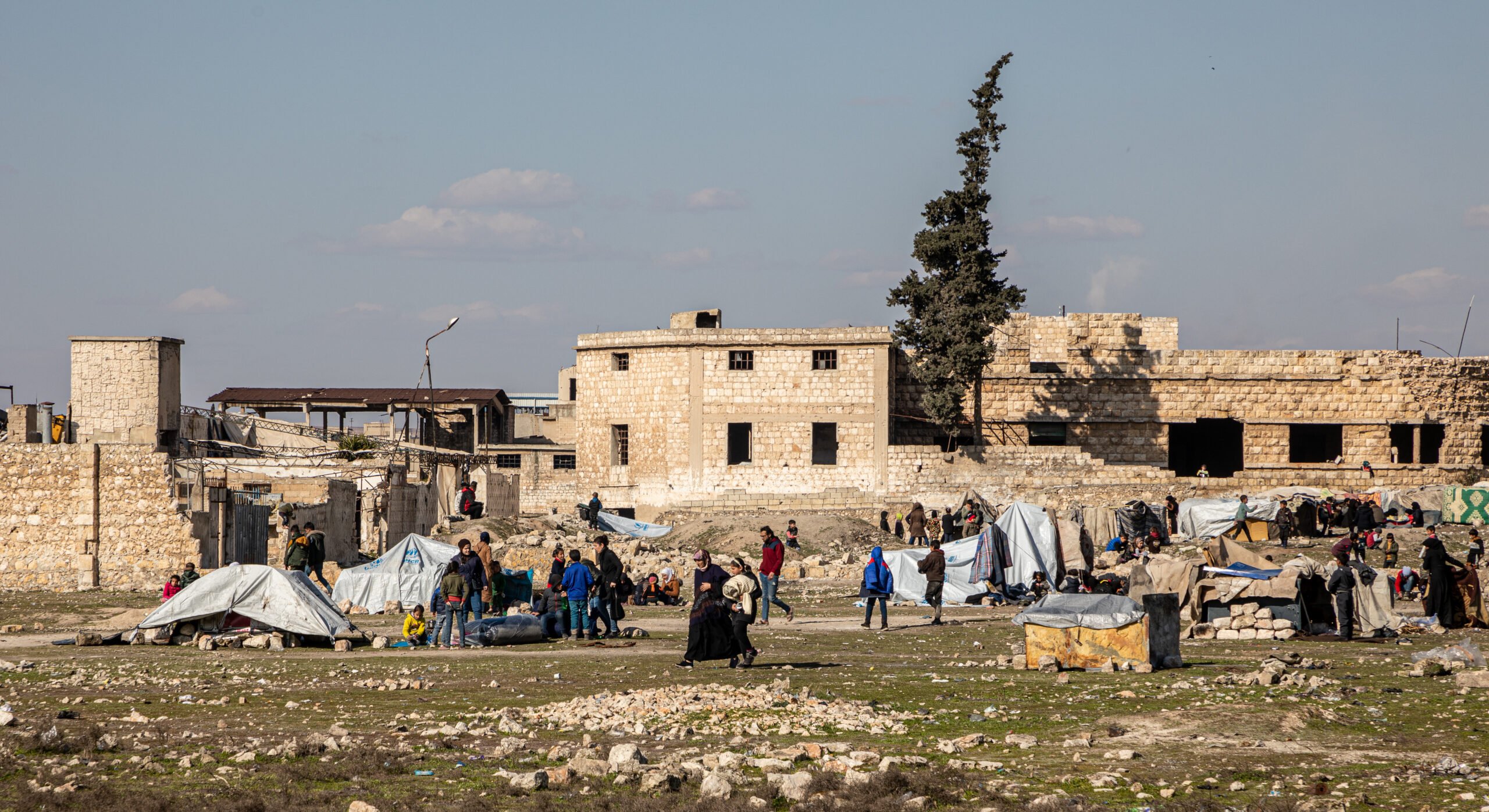
Families affected by the February 2023 earthquakes sheltering in Aleppo, Syria.© UNHCR/Hameed Maarouf
The long-standing conflict in Syria has created one of the largest displacement crises in the world. During the course of the conflict, more than 13 million people have been forced to flee their homes, with 6.8 million seeking refuge in the neighbouring countries of Egypt, Iraq, Jordan, Lebanon and Türkiye, and more than 6.7 million displaced internally.
The crisis has left some 15.3 million people in Syria in need of humanitarian aid and protection – an all-time high. An estimated 8.8 million people were further affected by the earthquakes in February 2023, exacerbating the pre-existing humanitarian challenges in Syria and the neighbouring countries. Prior to the earthquakes, the situation in the neighbouring refugee-hosting countries deteriorated in 2022 as intersecting socio-economic crises pushed more refugees into poverty. In Lebanon, 90% of refugee families were living in extreme poverty and needed humanitarian assistance, whereas in Jordan, 65% of refugees have been forced into debt. The situation is also severely affecting young people: within Syria, approximately 2.4 million children are out of school with 1.6 million more at risk of dropping out.
Yet, despite the ever-growing, ever-urgent need for humanitarian assistance inside the country, UNHCR in Syria remains severely underfunded, and by July 2023, had received only 28% of the funding required. Norway is one of the biggest donors of unearmarked funding, and its contributions allow UNHCR to respond to the numerous urgent needs and are essential for UNHCR to continue its life-saving work in the region and support internally displaced persons (IDPs) and returnees within Syria.
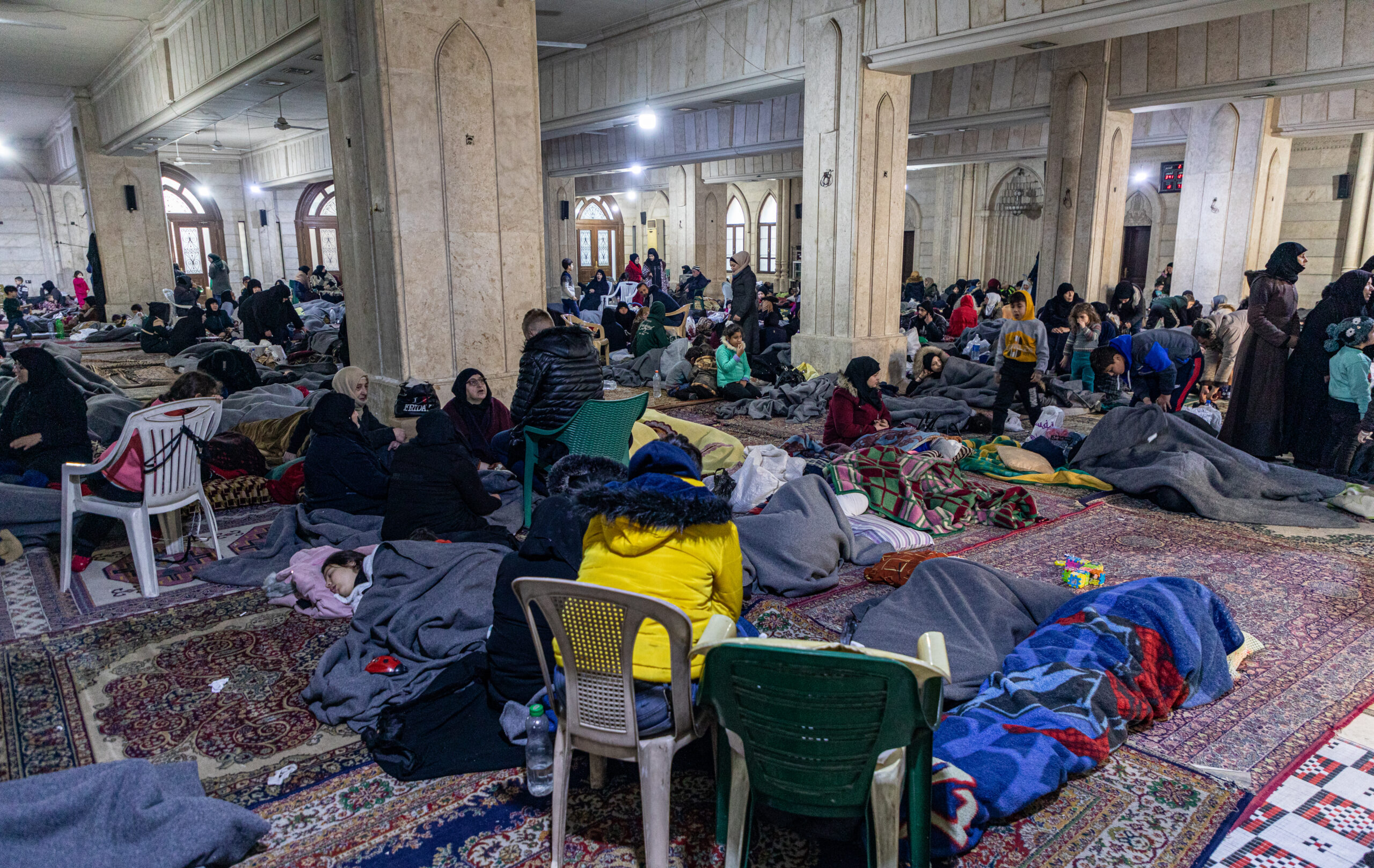
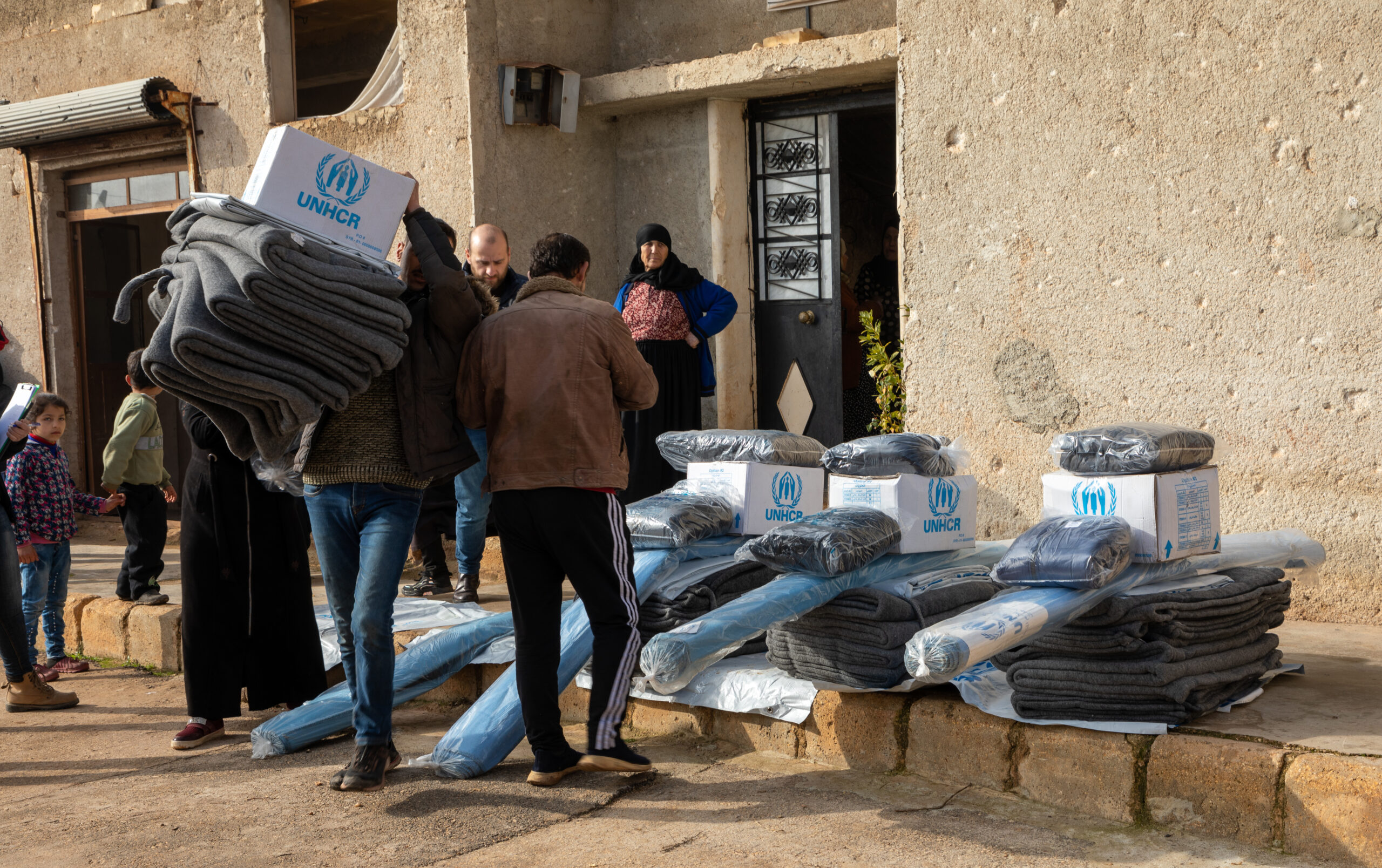
The earthquakes drastically increased the need for shelter as people’s homes were destroyed. In the first half of 2023, around 7,700 households were supported with shelter aid, including distributing tents, emergency shelter kits, as well as repair of housing and camps destroyed in the quakes.
During the winter, many IDPs and returnees are vulnerable to the harsh weather as access to food, fuel and electricity diminishes and economic hardship soars. Nearly 150,000 people have received core relief and winter items – such as high-thermal blankets, portable heaters and winter clothing – as part of UNHCR’s regular response.
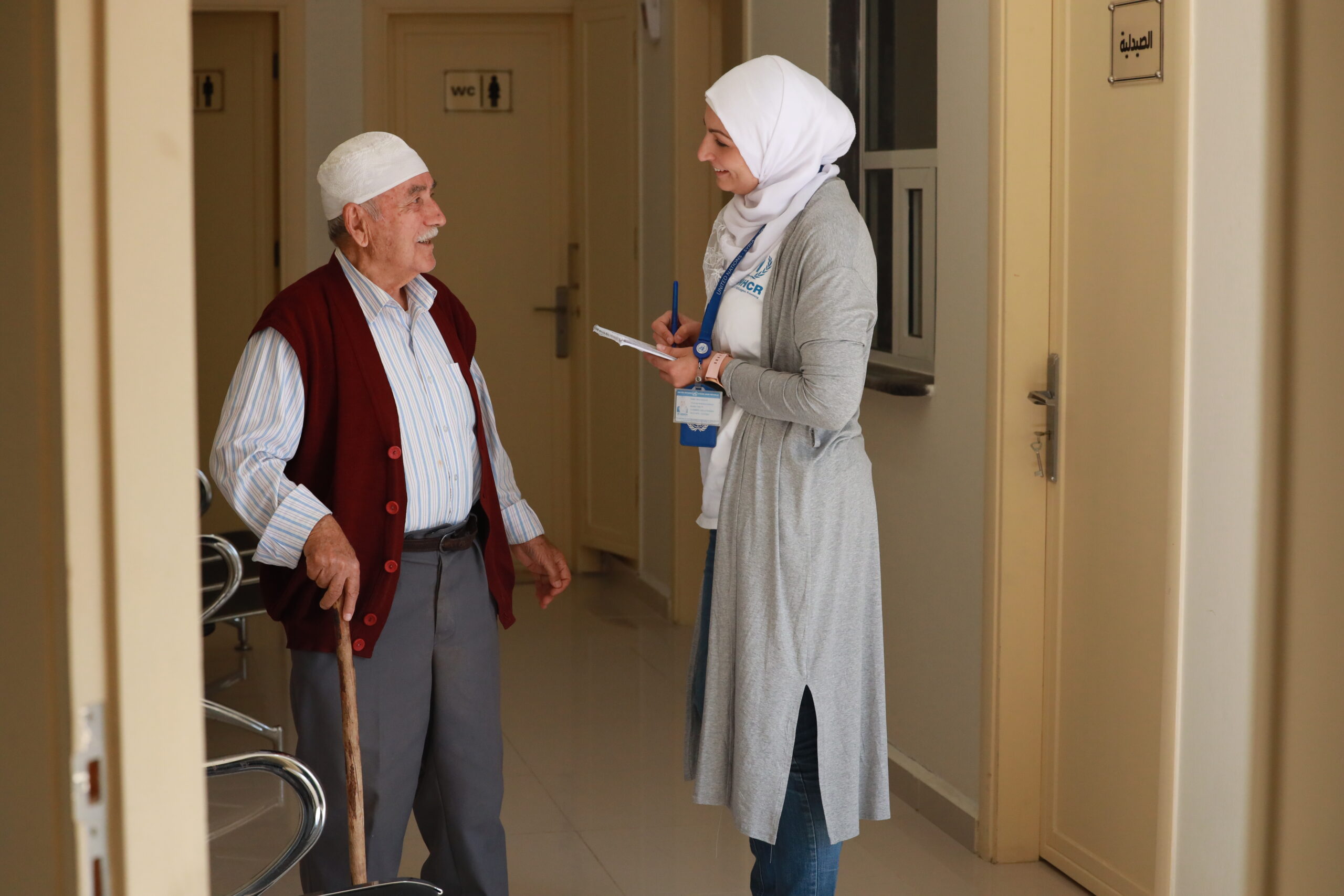
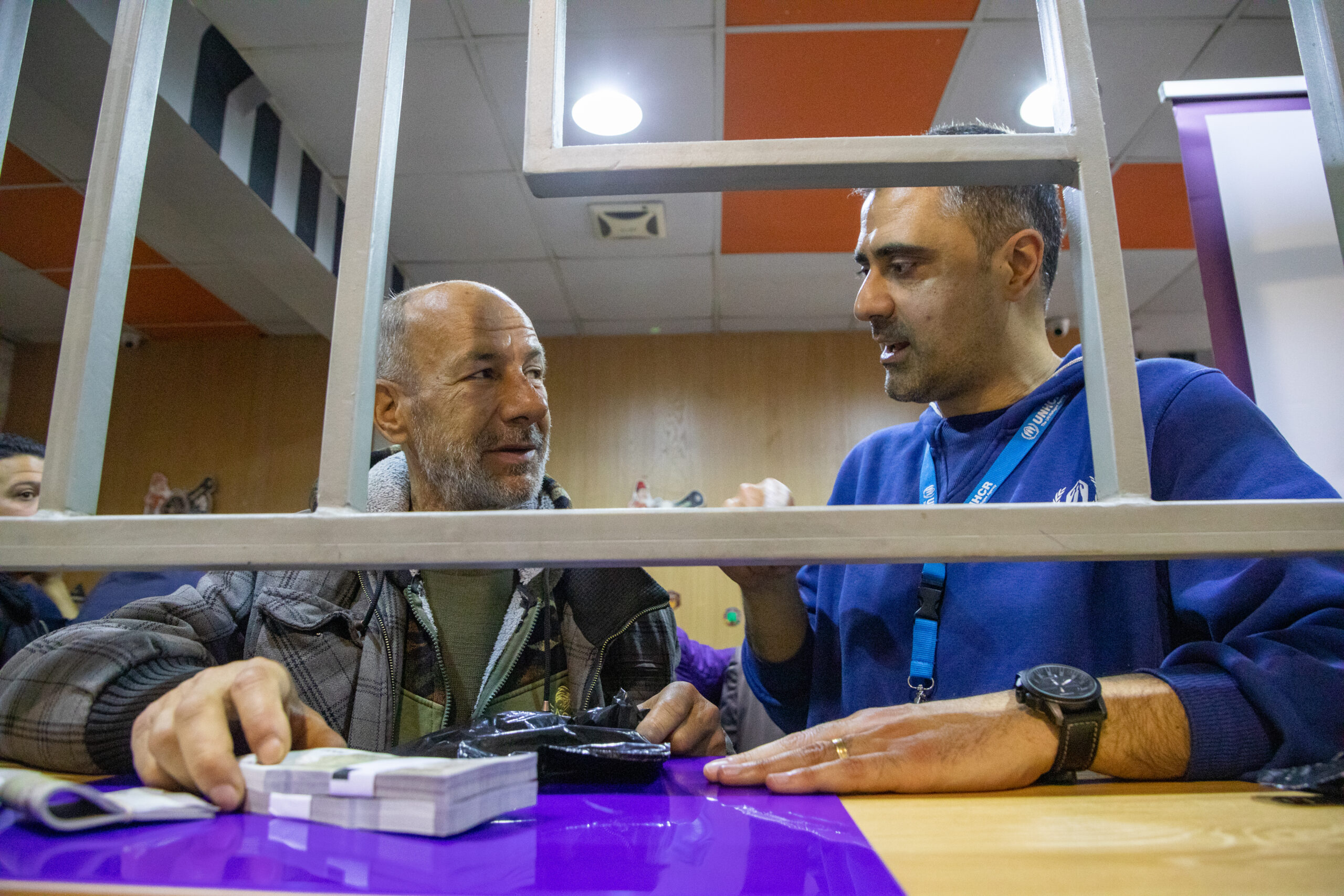
More than 145,000 people benefitted from health care services, including primary care in rural areas. This is particularly important for those IDPs and returnees who are elderly or disabled and cannot travel long distances. UNHCR has established health points in community centres in areas where health care is otherwise hard to access, in addition to outreach volunteers and mobile teams operating in remote areas.
UNHCR’s cash assistance gives forcibly displaced people the choice to prioritise their needs in a dignified manner and contributes to the local economy. As of the end of July, more than 1,800 families affected by the earthquakes have received emergency cash assistance.
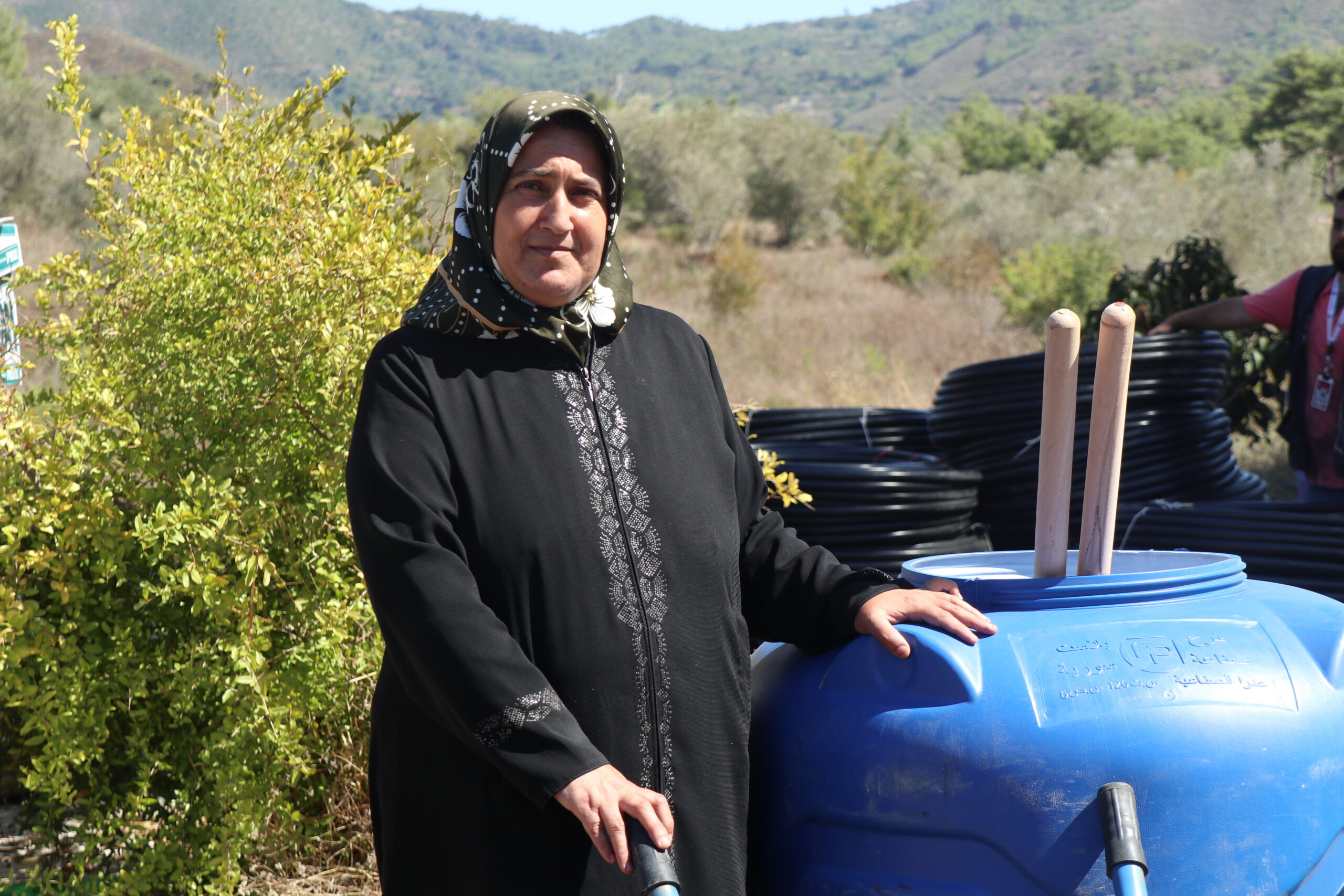
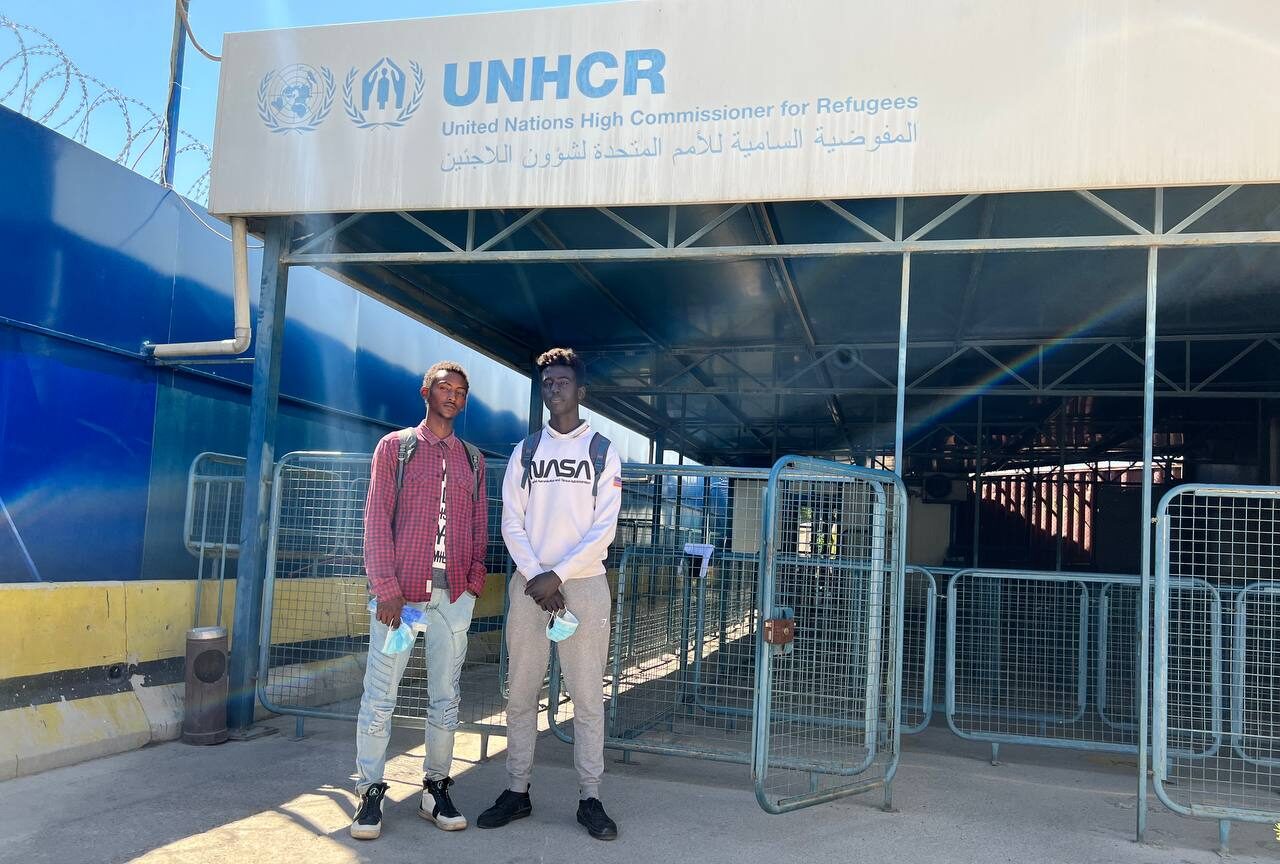
Besides supporting returnees’ livelihoods through assisting small-business enterprises, UNHCR has provided 3,000 farmers with agricultural assets like livestock, seeds and tools as of July 2023. Restoring agricultural activities is essential for livelihoods as well as ensuring food security.
UNHCR, in coordination with its partners, organised summer courses for over 2,000 students to catch up on their education and enjoy recreational activities in a safe environment. Over 9,600 students also participated in accelerated education programmes in the first half of 2023, increasing access to formal education.
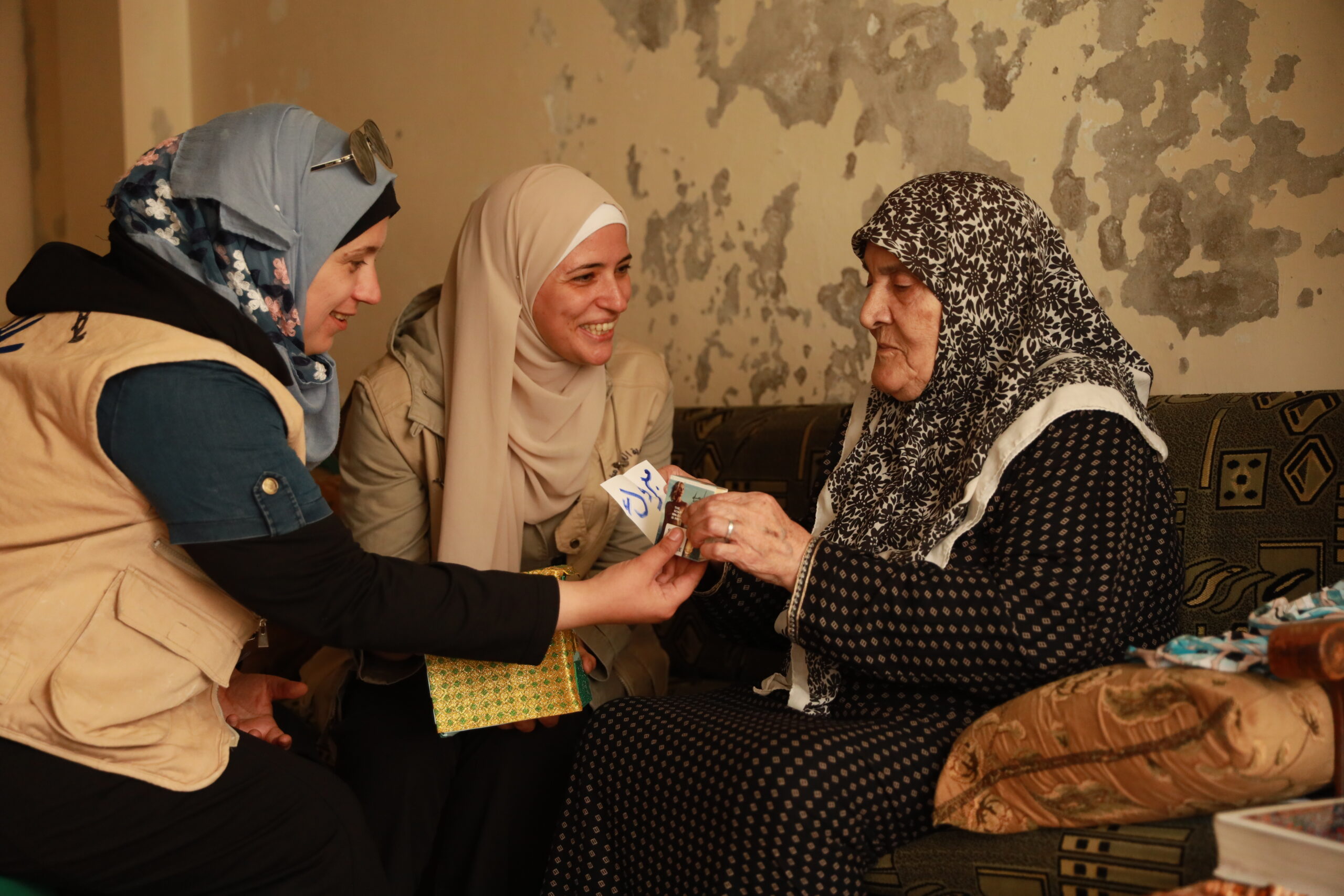
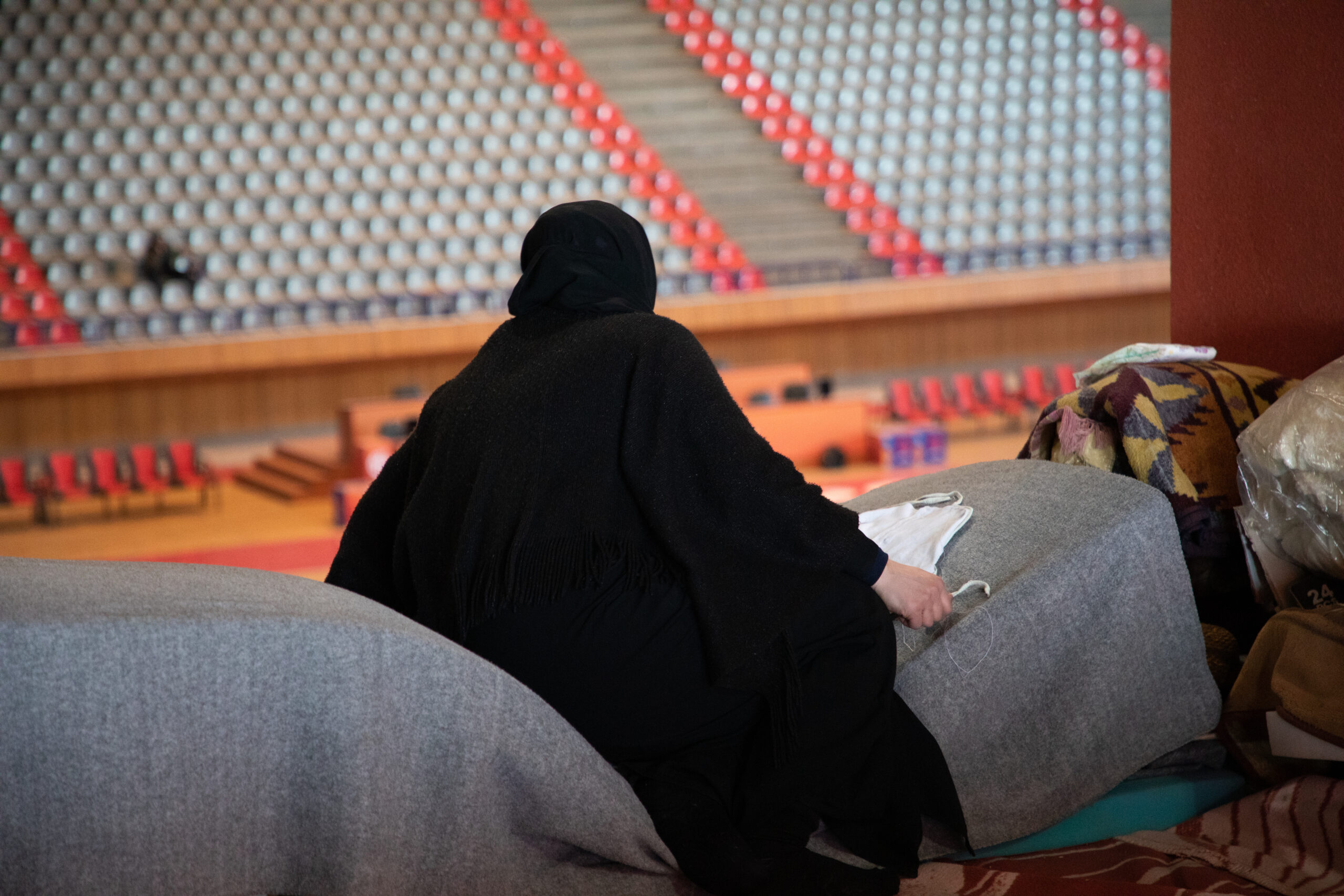
Years of crisis and insecurity have severely impacted mental health of the affected people in Syria. Between January and June 2023, more than 6,300 people received mental health and psychosocial support, sensitive to age, gender and diversity. Beyond specialised mental health services, psychosocial support includes strengthening community and family support by for example establishing older persons’ clubs and organising training for the caregivers of persons with disabilities about preserving their independence and dignity.
UNHCR’s approach to supporting those who have experienced gender-based violence seeks to empower the survivor by prioritising the survivor’s rights, needs and wishes. In the first half of 2023, 2,400 survivors received counselling, referrals to specialised health services, protection interventions or legal assistance. Moreover, nearly 3,700 at-risk children received support to protect them from child labour, childhood marriage and violence.
Norway as a donor to UNHCR:
As one of the largest governmental donors, Norway is a reliable partner for UNHCR. In 2023, Norway contributed USD 3.27 million to UNHCR’s operation in Syria, and a further USD 7.6 million to the Syria situation including the neighbouring countries hosting large numbers of displaced people. Norway is a key supporter of UNHCR’s efforts of ensuring access to education for refugee children and youth, for example through its involvement with Education Cannot Wait (ECW), that has been funding education interventions in Syria since 2017. Norway also contributed USD 2.6 million to the emergency response to the earthquakes in Türkiye and Syria. Norway’s unearmarked funding, which in 2023 stands at USD 63.1 million, 66% of its total contribution of USD 95.4 million, allows UNHCR the necessary flexibility to respond to emergencies as they happen.
Share on Facebook Share on Twitter